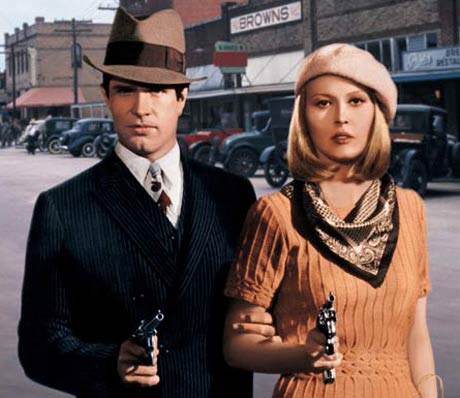Arthur Penns 1967 film Bonnie and Clyde, which tells the true story of Americas most notorious lover/gangsters, is a pivot on which the 20th century art of film turns. It marks a transition in so many ways: from the studio-dominated producer culture to the rise of the director-auteur; it was one of the first mainstream American films influenced by the French nouveau vague; it was one of the first "anti-hero films; and it redefined cinematic violence forever. Headed by avant-garde actor/producer Warren Beatty (Clyde) and featuring the debut of film icon Faye Dunaway (Bonnie), the film made heroes of its Depression-era protagonists and paved the way for everything from The Godfather to Natural Born Killers. On this chunky box-sets primary feature, Beatty admits that his memories might be true or might be how he wants to remember it, but Bonnie and Clyde doesnt seem all that revolutionary in its creation. Old guard cinematographer Burnett Guffey had the most trouble adjusting from controlled studio environments to Penns source lighting and location shoots, even quitting the production in frustration at one point before returning to complete the job, and later to collect one of the films two Oscars. Handsome presentation marks Warners two-disc DVD reissue, including a lovely hard book photo collection and a recreation of the original press material, but its sense of history extends only to a History Channel look at the true Bonnie and Clyde, and a look at where film divorces from reality. No commentary or analysis beyond its initial reception robs viewers of an important aspect of this films story: the ways in which it changed film culture forever. This microcosmic approach keeps attention squarely on the work, digging deep enough in the archives to find deleted scenes without audio, and wardrobe tests of Beatty trying on a variety of hats. Yet the film itself doesnt seem to have aged a bit. It wouldnt be nearly as shocking but it looks as contemporary and current today as it seemed like a revolution in its day.
(Warner)Bonnie and Clyde
Arthur Penn

BY James KeastPublished May 24, 2008